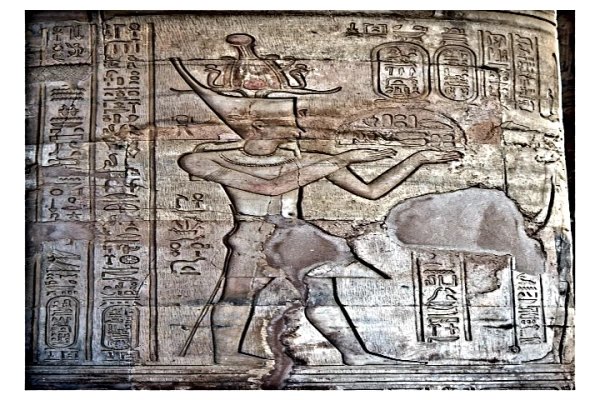
History of Ptolemy kings in Egypt from (VIIII - XII)
Ptolemy VIII
was nicknamed Jurgites II (i.e., the benevolent), but he was called Physkon Physkon (meaning the fat benefactor).In Egypt and from 163-145 BC. Ad and then from 145-116 BC. In Egypt, a violent revolution took place against him in the years 130-131, after which he fled, and Cleopatra II, Queen of Egypt, ruled alone during that period.
His conflict with his brother Ptolemy VI
When the Senate decided to separate Libya from Egypt and resolve this dynastic dispute by giving him the kingdom of Qurayna Belisa, he became king of it.
A few years later, Ptolemy VIII of Libya claimed that his brother Ptolemy VI was trying to assassinate him and annex Libya to Egypt a second time - and Ptolemy cleverly covered his claim by announcing by writing an inheritance will and publishing it, stating that upon his death his kingdom of Cyrene would pass to Rome. this commandment was discovered in an inscription in the Libyan city of Cyrene, but this commandment was not implemented because he succeeded his brother Ptolemy VI on the throne of Egypt and was known as Ptolemy VIII and he ruled Egypt for 54 years, the longest reign of a king from the Ptolemaic dynasty on the throne Egypt. And the second in the history of Egypt after the reign of Ramses II.
Stability in his reign
The reign of Ptolemy VIII is considered one of the most stable and as a result of this political stability and friendship with Rome, the rising superpower at that time, and the lack of wars, economic prosperity occurred and trade between the countries of the White Sea, which became a Roman Lake, and several Roman visitors visited Egypt for tourism, as well as official employees from Rome, a papyrus translation dating back to 112 BC was published. It was found in the remains of an archaeological village located about 100 km from the Sphinx and Pyramids area, containing instructions and orders sent by a senior employee of Alexandria: "Lucius memmius - a Roman senator - He enjoys a great position of prestige and honor making a trip from Alexandria to the territory of the arsenoite Arsenoite.
Ptolemy IX
"Soter, latyrus" or (the savior of chickpeas) 116 - 107 BC.Ad co-reigned with his mother, Queen Cleopatra III, 116-101 BC. His mother Cleopatra III did not want to take the throne after his father Ptolemy VIII and she wanted to take over from his brother Ptolemy X, but after interference and anger from the people and some princes, he took the throne against his mother's will.
Ptolemy X
After the death of Ptolemy IX, he had no heir to the throne; Egypt was ruled by his third wife, Berneike. He knew that there was a son of the former King (Ptolemy VIII), a resident of Rome, so he returned to Egypt and took over the rule in 107 and was nicknamed Alexander I, and died in 88 BC.
Ptolemy Xi
During his reign, a major revolution took place, and he was killed by revolutionaries. He was succeeded by Ptolemy XII.
Ptolemy XII
After the death of "Ptolemy Xi" drowned in the Nile along with his soldiers, "Julius Caesar" returned to Alexandria and entered it with the strength of his army after overcoming the people of Alexandria, and he succeeded the son of "Ptolemy X" the youngest on the throne of Egypt, according to the Will left by his father to rule the country his eldest son and eldest daughter after their marriage. Then he left for Rome, leaving a Roman military battalion to protect the new rulers, and the King was called "Ptolemy XII", but the actual ruler was Cleopatra. After a year of Reign, "Ptolemy XII" and"Cleopatra" visited Rome, and then ruled Egypt after his return two years, so that each term of his reign would be three years. Some historians have stated that he died poisoned by the hand of "Cleopatra".














